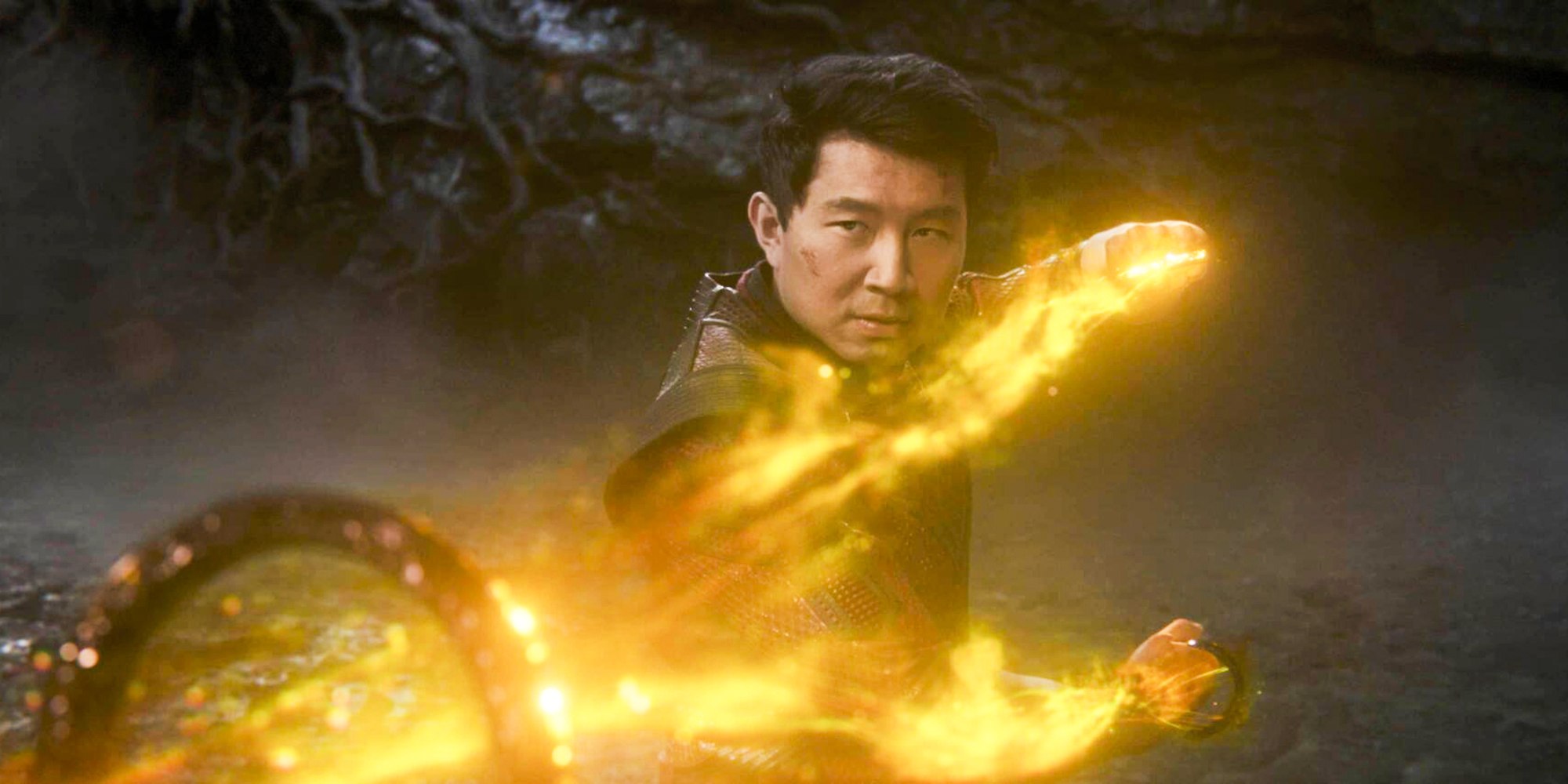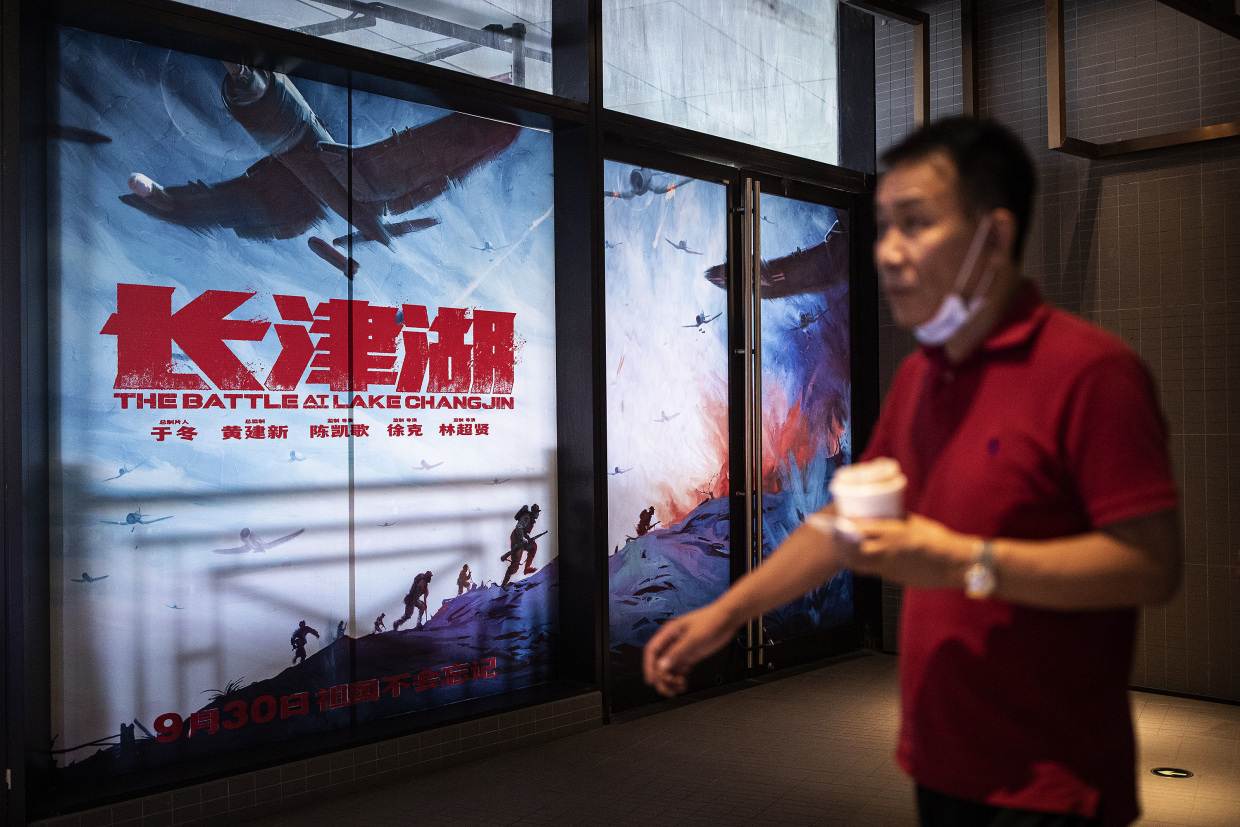Marvel's 'Shang-Chi' was made with China in mind. Here's why Beijing doesn't like it.
"Shang-Chi and the Legend of the Ten Rings" is the latest movie to run into trouble in the country as nationalism and U.S.-China tensions rise.

Simu Liu in "Shang-Chi and the Legend of the Ten Rings."Marvel Studios
Oct. 3, 2021, 1:30 AM PDT
By Rhea Mogul
HONG KONG — David Tse recalls being overcome with pride as he walked out of a British movie theater after having watched "Shang-Chi and the Legend of the Ten Rings," Marvel's latest superhero film.
"Our community has finally arrived in the West," Tse, a British Chinese actor and writer, said by telephone from Birmingham, England. "Every Chinese person around the world should be immensely proud of Shang-Chi."
The film, Marvel's first with a predominantly Asian cast, has been a hit with global audiences, having earned more at U.S. theaters than any other movie during the coronavirus pandemic and grossed more than $366 million worldwide since it was released early last month.
But despite its box office success and the overwhelmingly positive reaction of Asian communities worldwide, it isn't playing on a single screen in mainland China, which last year overtook North America as the world's biggest movie market. It's the latest film to run into trouble in the country as nationalism and U.S.-Chinese tensions rise.
From the beginning, "Shang-Chi" was made with China in mind. Much of the film's dialogue is in Mandarin, and the cast includes some of Asian cinema's biggest names, including Michelle Yeoh and the Hong Kong superstar Tony Leung, making his Hollywood film debut.

Marvel's first movie with a predominantly Asian cast has been a hit with global audiences. Courtesy of Marvel
Simu Liu, a Chinese-born Canadian actor who also starred in the Netflix sitcom "Kim's Convenience," plays Shang-Chi, a reluctant martial arts warrior forced to confront his father. The film has been widely praised as a major step forward as Hollywood tries to improve representation of Asians and Asian Americans.
"Finally we see a strong character that isn't stereotyped the way we have been for generations," Tse said. "Our young people are desperate for more of them."
"Shang-Chi" hasn't gotten the same welcome in China, where movies are strictly censored and the number of foreign releases each year is limited. That hasn't stopped Marvel in the past — in 2019, "Avengers: Endgame" earned $629 million from mainland Chinese audiences, more than any other foreign film in history.
Officials haven't said why "Shang-Chi" has no release date, and the propaganda department of China's ruling Communist Party, which regulates the country's film and TV industry, didn't respond to a request for comment.
Experts point to the deterioration of U.S.-China relations, rising Chinese nationalism and the character's racist comic book past.
Rife with stereotypes
Marvel debuted the Shang-Chi character in 1973 amid growing American interest in martial arts movies. The early Shang-Chi comics were rife with stereotypes about Asians — the characters were portrayed in unnatural yellow tones. Shang-Chi's father, a power-hungry villain named Fu Manchu, has been criticized as a symbol of "yellow peril," a xenophobic ideology originating in the 19th century in which Asians, especially Chinese, were viewed as a threat to Western existence.
Marvel Studios President Kevin Feige has emphasized that Fu Manchu is no longer a character in Marvel comics and that Shang-Chi's father in the film, played by Leung, is a completely different character named Xu Wenwu. But for some the connection persists.
"Chinese audiences cannot accept a prejudiced character from 100 years ago is still appearing in a new Marvel film," the Beijing-based film critic Shi Wenxue told the Global Times, a state-backed nationalist tabloid.
Liu, 32, who emigrated to Canada with his parents in the 1990s, has also drawn public ire over past comments critical of his country of birth.
In a 2016 Twitter post, he described Chinese government censorship as "really immature and out of touch."
The next year, in an interview with the Canadian Broadcasting Corp. that has since been taken down, Liu described China as a "third world" country where people were "dying of starvation" when he and his parents left. A screenshot of his comments has circulated on Weibo, a popular social networking platform in China, with one user commenting: "Then why does he play a Chinese character?"
Michael Berry, director of the UCLA Center for Chinese Studies, said Liu's comments had been "taken out of context and politicized."
"Once a cyberattack is waged against a film or individual in China, there are usually a series of talking points that are manufactured and then leveraged to take advantage of rising nationalist sentiment," he said.
'Reclaiming our culture'
The anger over Liu's comments echoes that of an earlier episode involving Chloé Zhao, the Beijing-born director of "Nomadland," who made history this year when she became the first woman of color to win the Academy Award for best director.
"Nomadland" had been scheduled for a limited mainland release, but then a 2013 interview with Filmmaker magazine resurfaced in which Zhao described China as "a place where there are lies everywhere." She was targeted by online commenters who accused her of smearing the nation, and the film was never shown.
"Eternals," a coming Marvel film directed by Zhao, could also be denied a release date in mainland China.
Berry said the treatment of Liu and Zhao was a "great tragedy," describing them as China's "best hope for better cross-cultural understanding between China and the West."
Many moviegoers elsewhere in the region have celebrated "Shang-Chi" for promoting that understanding.

Officials have not said why "Shang-Chi" has no release date, and the propaganda department of China's ruling Communist Party, which regulates the country's film and TV industry, did not respond to a request for comment. Courtesy of Marvel
Adrian Hong, 22, a student who has seen the movie twice in Hong Kong, which has its own film regulator, said it spoke volumes about the "beauty and grace of Chinese culture."
"The beauty of martial art, the concept of yin and yang, the incredible mythical creatures all add to the film," he said.
Some commenters on Weibo have also questioned the mainland government's apparent decision not to show the film.
"Why do some people say 'Shang-Chi' offends China?" one user asked. "The movie doesn't offend China, but promotes traditional Chinese culture instead."
For Tse, the actor and writer, "Shang-Chi" is all the more important because of the rampant anti-Asian racism, discrimination and violence unleashed by the pandemic.
"This is a pushback for all the Asian hate crimes against us. It's an answer to all the bigots who have been against us for decades," he said. "'Shang-Chi' is us reclaiming our culture. It says globally, culturally, this is a new tide of history."





 Reply With Quote
Reply With Quote

/cloudfront-us-east-2.images.arcpublishing.com/reuters/VHJX7JYCZ5L7ZHCAAQD4NGKTT4.jpg)














